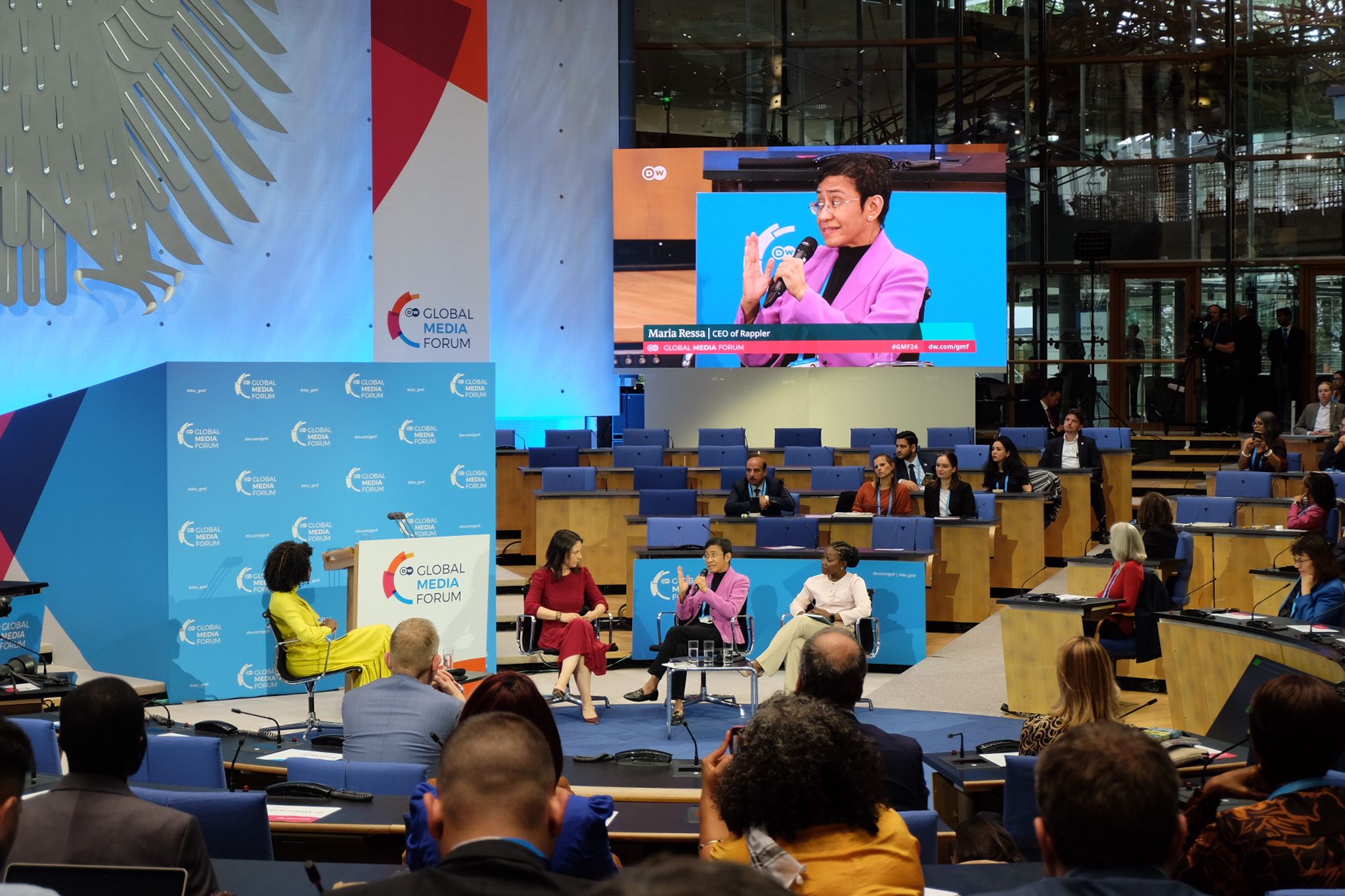German foreign minister urges media forum: Protect press freedom
BONN, Germany—German Foreign Minister Annalena Baerbock has called for the protection of press freedom across the world, noting, among other threats to journalists worldwide, the attacks experienced by Nobel laureate Maria Ressa during the Duterte administration.
At the Global Media Forum organized by state-owned broadcasting company Deutsche Welle here, Baerbock pushed for protection of the physical and digital spaces of journalists to ensure that press freedom remains upheld.
Baerbock was concerned about attacks against journalists worldwide, including those experienced in Gaza, Afghanistan and Sudan. "Autocratic regimes" are also cracking down on independent voices.
"Maria Ressa... told me how the regime of Rodrigo Duterte spread lies about her and her family on social media, how she received 90 hate messages online every [hour], how she was subjected to sham lawsuits and arrests against her. She wants to strike this message, as I quote, death by a thousand cuts for our democracy," Baerbock told a gathering of foreign journalists Monday (local time).

"We as a society have to stand up against these threats. Let's not forget where press freedom is under pressure, freedom itself is in danger for all citizens," she added.
Baerbock also called for the international regulation of artificial intelligence (AI) so that "technology does not distort the digital spaces for independent journalistic voices."
"Independent journalism is a cornerstone of our democratic system," she emphasized.
Baerbock said there is a need to make sure that AI "is used fairly and ethically."
Baerbock made such a call following the use of AI in the recent Indian elections, where AI-generated voices in different languages called on voters to promote policies and candidates.
Her concern is relevant as the year will witness lots of elections from across the globe.
"This is just a taste of what's to come. AI makes disinformation campaigns cheaper, easier, and more effective. Campaigns that, on the other hand, are capable of undermining trust in democratic institutions, but also in independent journalists," Baerbock said.
"We need to shape this technology in a way that keeps human beings in control, that benefits all our societies. We know that this will be a task for an entire generation... But if we don't start addressing this task now, we will risk falling behind," she added.
Baerbock delivered her speech before holding a discussion with Ressa and Her Story Uganda founder Culton Scovia.
'From hell to purgatory'
Ressa said press freedom in the Philippines improved in the Marcos administration, but asserted the need to still demand accountability from those in power amid threats against the media.
Ressa, who was cited by the Nobel Committee for her efforts “to safeguard freedom of expression,” described the media condition under the Duterte administration as “hell.”
But she said the situation has improved under the Marcos administration, describing it as being only "purgatory," citing the dismissal of eight of the 10 cases against her and Rappler.
"We're not where we should be. But it's better," she said.
"Now what we need to do: we need to demand accountability," she added.
Differing from Baerbock's view, Ressa said today's problem concerning press freedom "is not about content. It's about data."
"The insidious manipulation not just of algorithms, not just of artificial intelligence, but now when you have generative AI, where you can create...several deep fakes... you will not be able to tell the difference. So you will not be able to tell fact from fiction," Ressa said.
So Ressa gave three solutions: Pass a law that will stop surveillance capitalism, an act that monitors and gathers people's information online for profit; stop coded bias, which means further marginalizing online the marginalized group; and use journalism as an antidote to tyranny.
"We have to move at the pace of tech," Ressa said. And amid threats to journalism due to the prevalence of AI, the Nobel laureate said we must stick to the facts.
"If you don't have facts, you don't have truth. If you don't have truth, you don't have trust," she added.